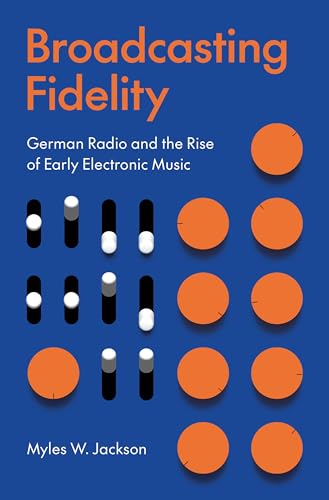Broadcasting Fidelity: German Radio and the Rise of Early Electronic Music
Goodreads
Myles W. Jackson
visão geral
A landmark history of early radio in Germany and the quest for broadcast fidelity
When we turn on a radio or stream a playlist, we can usually recognize the instrument we hear, whether it’s a cello, a guitar, or an operatic voice. Such fidelity was not always true of radio. Broadcasting Fidelity shows how the problem of broadcast fidelity pushed German scientists beyond the traditional bounds of their disciplines and led to the creation of one of the most important electronic instruments of the twentieth century.
In the early days of radio, acoustical distortions made it hard for even the most discerning musical ears to differentiate instruments and voices. The physicists and engineers of interwar Germany, with the assistance of leading composers and musicians, tackled this daunting technical challenge. Research led to the invention in 1930 of the trautonium, an early electronic instrument capable of imitating the timbres of numerous acoustical instruments and generating novel sounds for many musical genres. Myles Jackson charts the broader political and artistic trajectories of this instrument, tracing how it was embraced by the Nazis and subsequently used to subvert Nazi aesthetics after the war and describing how Alfred Hitchcock commissioned a later version of the trautonium to provide the sounds of birds squawking and flapping their wings in his 1963 thriller The Birds .
A splendid work of scholarship by an acclaimed historian of science, Broadcasting Fidelity reveals how the interplay of science, technology, politics, and culture gave rise to new aesthetic concepts, innovative musical genres, and the modern discipline of electroacoustics.